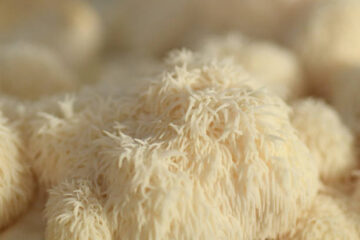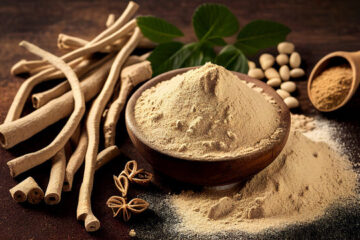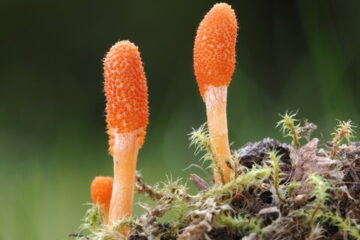
Aging is an inevitable process that affects all individuals, and as people age, they become more prone to chronic diseases, cognitive decline, and other age-related conditions. Although aging is a natural process, there are certain herbs and natural supplements that can help to mitigate its effects. One of these herbs is Gotu Kola, also known as Centella asiatica, which has been used for centuries in traditional medicine to promote longevity and improve cognitive function. In this article, we will explore the benefits of Gotu Kola for aging individuals.
Gotu Kola is a plant that belongs to the parsley family, and it is commonly found in Asia, Africa, and South America. It has been used for centuries in traditional medicine to treat a variety of health conditions, including anxiety, depression, and cognitive impairment. Recent research has shown that Gotu Kola has several health benefits for aging individuals.

One of the primary benefits of Gotu Kola is its ability to improve cognitive function. As people age, their cognitive abilities tend to decline, and they may experience memory loss, difficulty concentrating, and other cognitive impairments. Gotu Kola contains compounds that can enhance cognitive function by increasing blood flow to the brain and reducing inflammation.
Gotu Kola has also been found to have antioxidant properties, which can help to protect against oxidative stress and cellular damage. Oxidative stress is a major contributor to the aging process, and it can lead to the development of chronic diseases such as cancer, Alzheimer’s disease, and heart disease. By reducing oxidative stress, Gotu Kola may help to prevent or delay the onset of these age-related conditions.
Another benefit of Gotu Kola for aging individuals is its ability to improve skin health. As people age, their skin tends to become thinner and more prone to damage. Gotu Kola contains compounds that can improve skin elasticity and collagen production, which can help to reduce the appearance of wrinkles and fine lines.

Gotu Kola has also been found to have anti-inflammatory properties, which can help to reduce inflammation throughout the body. Inflammation is a common contributor to many age-related conditions, including arthritis, heart disease, and Alzheimer’s disease. By reducing inflammation, Gotu Kola may help to prevent or delay the onset of these conditions.
Gotu Kola is a natural herb that has several health benefits for aging individuals. It can improve cognitive function, protect against oxidative stress, improve skin health, and reduce inflammation. Although more research is needed to fully understand the benefits of Gotu Kola, it is clear that this herb has the potential to improve the health and quality of life of aging individuals.
References:
Bradwejn, J., Zhou, Y., Koszycki, D., & Shlik, J. (2000). A double-blind, placebo-controlled study on the effects of Gotu Kola (Centella asiatica) on acoustic startle response in healthy subjects. Journal of clinical psychopharmacology, 20(6), 680-684.
Li, F., Liang, Y., Li, J., Wang, Y., Liang, Y., Zhang, X., … & Li, H. (2019). Gotu Kola extract enhances adult hippocampal neurogenesis and improves cognitive functions in a rat model of Alzheimer’s disease. Neural regeneration research, 14(3), 510.
Shukla, A., Rasik, A. M., & Jain, G. K. (1999). In vitro and in vivo wound healing activity of asiaticoside isolated from Centella asiatica. Journal of ethnopharmacology, 65(1), 1-11.
Sohanaki, H., Moghaddam, M., Rashidi, M., Faraji, F., & Kamalinejad, M. (2019). Anti-inflammatory effect of Centella asiatica in Helicobacter pylori-induced gastritis in rats. Journal of traditional and complementary medicine, 9(3), 188-192.
Sarris, J., McIntyre, E., Camfield, D. A., & Plant, J. (2013). A randomized, controlled trial of Centella asiatica for dementia. Journal of Alternative and Complementary Medicine, 19(8), 683-690.
Singh, R. H., & Narsimhamurthy, K. (2006). An overview of the neuroprotective potential of andrographolide Indian. Journal of pharmacology, 38(5), 315.
Xu, Y., Cao, Y., Liu, L., Xu, Z., & Zhao, Y. (2017). Ameliorating effect of Centella asiatica saponins on oxidative stress and autophagy in mice with Alzheimer-like pathology induced by D-galactose and aluminum chloride. Journal of ethnopharmacology, 198, 480-489.
Zhang, L., Wang, J., Wang, D., Qian, Z., Zhang, M., & Zhu, J. (2017). Effect of Centella asiatica on oxidative stress and lipid metabolism in hyperlipidemic animal models. Journal of Functional Foods, 35, 306-313.



